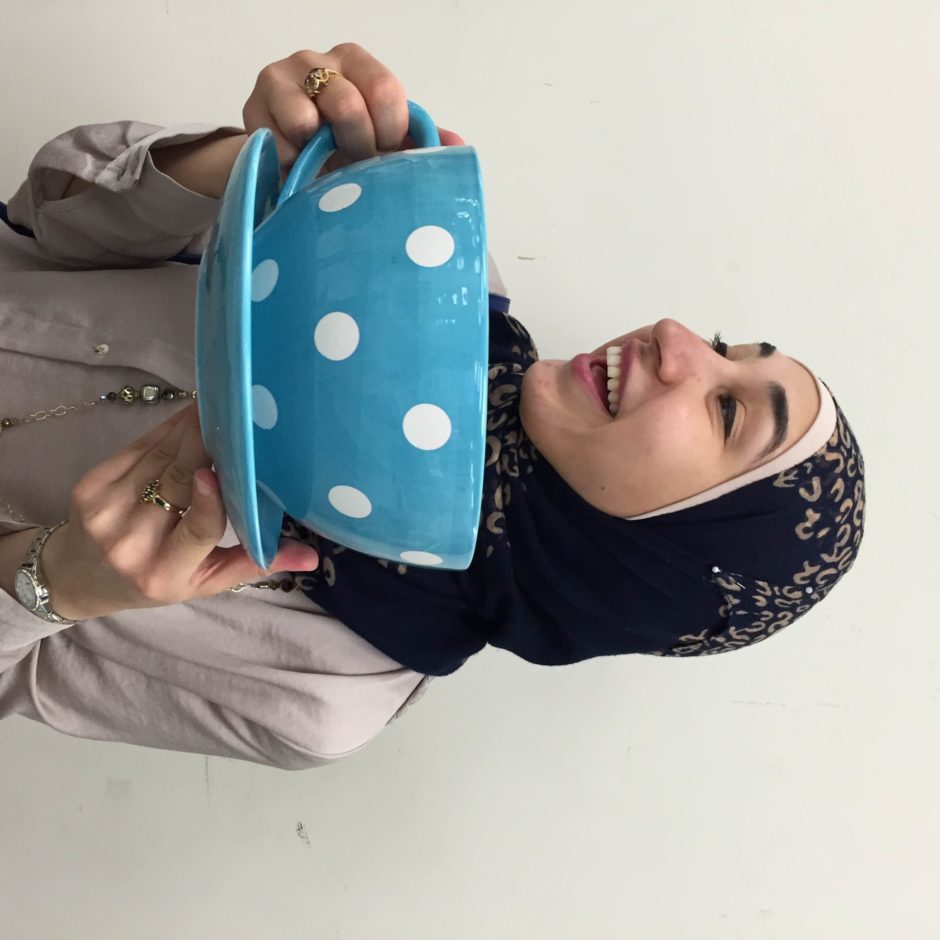By Viktoria Velika
Ronda Shirley is 48 years old head volleyball coach. Shirley comes from small county town Earling, Iowa, where she grew up living at her family’s farm. She is currently located at University of South Carolina Upstate in Spartanburg where she moved last spring. Looking at her one would never guess how important this woman is for many people. She is short with light brown hair, beautiful blue eyes which reflect her personality of caring and loving human being who loves to spend her free time reading and playing board games on the family nights. However, once she comes to her well-organized office, full of her awards, pictures with quotes and a diet soda on her table, she changes into focused, hardworking woman who brightens up every place with her confidence. Shirley is not just a successful coach, she is also mentor, and role model who motivates her players and children to become the best versions of themselves.
Besides having a busy life as a coach, always preparing for matches, spending hours in the gym or in the office watching film and recruiting new players, Shirley also has six beautiful children. They often come to her games to watch and support their mom, screaming and cheering for her and her team. Despite the fact of having a team of about fifteen players, who also become her kids as they join her team, being a mother and a coach is not hard for Ronda Shirley. When I ask her how does she handle everything her answer is simple: “I have great husband, Jeff is always supporting me, I know I couldn’t be as successful as a coach as I am without him, he takes a lot of pressure of me during season, he takes the bigger responsibility, so I can be more focused on coaching. I have to give a lot of credit to Jeff.”
Shirley was also a successful athlete herself. However, the sport she dedicated her career to as a student-athlete was not volleyball but softball. “I have always liked volleyball but softball was just natural to me,” explains Shirley when I ask her why she picked softball over volleyball. She was a Varsity Starter catcher all four years of High School and her team made it to the State Tournament three out of four times. When she was named All-Conference, All-Southwest Iowa, and All-State player it was clear which path she will choose. During her college career she won many awards but the one that she enjoyed the most was being named an All-American and winning NCAA DII National Championship for Kentucky Wesleyan. As we are speaking about her achievements as an athlete she looks at me with serious face: “I dedicated all of my time to softball and studying, I was working hard every minute of the practice, bringing hundred percent every day. I would always find time to do some extra work, because I knew how good I can be and how much I could help my team.”
After graduating from Kentucky Wesleyan with a degree in English, she began her career at Brown Mackie in 1995. “I never planned to be a coach, I wanted to be an editor, or teach English at college level, reading and writing was always my biggest passion, but my coach from junior college would always tell me that I should be a coach, he saw something in me that I didn’t at that time,” says Shirley with smile on her face. When she graduated, she took her first job as an assistant coach at her alma mater in Kansas where she spent four seasons on the sidelines and won Coach of the Year in 1998. Shirley coached for 13 seasons at Hutchinson, Kansas, where she achieved 378 wins and .708 winning percentage. She led the team to winning five Regional Championships and five NJCAA National tournament appearances. In 2017 she was inducted into the Hutchinson Community College Hall of Fame. After that she became a head coach at Tyler Junior College in Texas. She led Tyler to three Region XIV conference championships, while she was also named three times the Coach of the Year, and went to the National Tournament in 2012, 2013, and 2014. In 2017, she took over Navarro College in Corsicana, Texas.
Last season, Ronda Shirley was standing on the side of the Lee College volleyball court, leading her Navarro team towards breaking every school record. And they did. Navarro finished with a 37-8 overall record, winning the conference for the first time since 1999. At Regionals, they won a nail-biting fight against TVCC, scoring a ticket to the NJCAA Nationals for the first time in the school history. “Nothing from what we achieved would be possible without coach Shirley, she is the reason why Navarro became winning team, why we now have a name in the volleyball world, she would push us every day making us work hard towards reaching our goals, and she was successful,” says Bailey Foy, one of Ronda Shirley’s All-American players.
Shirley changed history in every school she went to and the key to her success is quite simple: “I just work hard, I think people can see that I have passion for it and I really love it.” Over her 19 seasons as Head Coach, she has coached many successful players. Five Players of the Year, seven Freshmen of the Year, 53 All-Conference, 36 All-Region and 15 All-American players are just a few of the player nominations obtained under her belt. “What I enjoy the most about coaching is seeing my players reach a level that they never thought they could reach, but I knew they could do it, that is more important to me than any win,” said Shirley. She also has players who excel in their classrooms and 12 Academic All-Americans: “I always want to make sure my players are well educated, and I also feel like the skills they learn on the court like working hard, and pushing themselves to use their skills and all their tools, being a good teammate and leader, that’s going to help them to get a job in the future and be successful off the court.”
After spending almost twenty years as a head coach at junior college Ronda Shirley is now a head coach at a DI NCAA volleyball program at USC Upstate. “I loved coaching at junior colleges and I miss it a lot, it has more ‘family’ feeling. I loved knowing that I can help my players to go to the next best thing in their lives,” smiles Shirley. During her career at JUCO Shirley has achieved many awards including almost 600 wins in her 19 seasons as a coach. In 2015 she was inducted into the NJCAA Coaches Association Hall of Fame. The reason why she has decided to leave JUCO and coach at four-year University is simple. She needed to take the challenge, to experience new things, and change the way of how USC Upstate is think of. “All of the schools I went to coach to have never won conference title before, so one of my goals is that I can get them to win a conference championship, but before that my goals are to change how people think about this program,” says Shirley with confidence.
However, all this success is not easy to reach and being a player on Ronda Shirley’s team is not an easy task. Luana Rezende, one of her former players, who won All-American Second Team award last year says about Shirley this: “I would say that she definitely had huge impact on my life. Of course I didn’t agree with everything she did, but she made me a stronger person and she made me look at life differently. She is a really, ‘really’ nice human being, however sometimes it was hard to play for her.”
One of the quotes on the board in her office says: “Winners never quit,” and it is exactly what Shirley requires from her players. She wants them to give everything they have, to work hard, to be determined, confident, courageous and give their hundred percent every day. Despite all the wins and success, creating relationship with her players is the most important thing for Shirley. She wants them to be ready for the world, but also she makes sure that they know she believes in them, which makes them work harder not for her, but themselves.
During the season but also offseason she creates different types of team bondings. She takes her team to games, makes movie nights, when it comes to fall and Halloween time, her and her team paint pumpkins, and sometimes she invites the players to her house and cooks a good dinner for them. She becomes the second mother for her players while they are away from home. “Even though I know that sometimes it is hard to play for me, I know that at the end of the day my players know that I care about them as a person, that I am tough on them because I want the best of them, that I will always be there for them,” says Shirley. As we are finishing the interview Shirley tells me one last important thing: “It’s the moment when I see the look on the faces of my players. The look that shows amazement and shock when they realize how good they have become. They don’t believe it at first, how great they can be, but I do. And when they reach their potential, it is very heartwarming moment. It’s the moment when I know that coaching is what I am supposed to be doing.”
Viktoria Velika is a writer and sports enthusiast.
Upcoming events with Jen
~~~~~~~~~~~~~~~~~~~~
THE ALEKSANDER SCHOLARSHIP FUND











